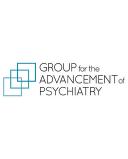Psychiatry
Psychiatrists in the Courtroom
5 myths about forensic psychiatric expert testimony.
Posted March 15, 2023 Reviewed by Gary Drevitch
Key points
- Misconceptions exist about the role of forensic psychiatrists in the courtroom.
- Psychiatric expert testimony educates the court regarding the diagnosis and treatment of mental illness as it relates to a legal matter.
- Forensic psychiatry has a wide range of practice areas, such as patient care in correctional settings and academic research.
by Abhishek Jain, MD and Renee Sorrentino, MD, members of the Committee for Psychiatry & Law at the Group for the Advancement of Psychiatry
The expert witness is a hood ornament on the vehicle of litigation, not the engine. —Robert I. Simon, MD, 1997.
Courtroom testimony by forensic psychiatrists often captures public attention and imagination. Recent high-profile cases involving Amber Heard and Nikolas Cruz, and documentaries such as Netflix’s Monster: The Jeffrey Dahmer Story, have again brought the field into the limelight.
However, misconceptions about forensic psychiatric expert testimony have also re-emerged. We take this opportunity to dispel some of these myths.
Myth 1: Experts are hired guns.
An attorney’s role is to represent and advocate for their client. Forensic psychiatrists, by contrast, should aim to be neutral and go where the facts lead them, independent of which side hired them. Their payment should be based on their time, and not whether their opinion sways a judge or jury.
In fact, a core ethical principle in forensic psychiatry is honesty and striving for objectivity. This is important regardless of who (e.g., prosecution, defense, court) hires the expert. This also requires presenting a fair representation of the case, even if information is not favorable to the attorney who hired them. For that reason, it is not uncommon for experts to either decline a case or to notify the retaining party if, after careful review and evaluation, their findings are unlikely to be helpful.
Of course, attorneys typically only proffer an expert’s testimony if it helps their case and would not call to the stand a witness whose conclusions are unfavorable. After an expert reaches a professional opinion in a case and is asked to testify, it is also reasonable that they would advocate for their findings. A lack of understanding of this process can add to the false impression that experts are just trying to, or are even obligated to, help win the case.
Myth 2: Psychiatric disorders always explain criminal behavior.
While psychiatrists are physicians who have professional insight and explanations into general patterns of thoughts, feelings, behaviors, and motivations, not all human behavior can be explained by a psychiatric diagnosis.
For example, research has estimated that less than 5% of violence in the U.S. can be attributed to mental disorder. In another study, even among offenders with mental illness, fewer than 1 in 5 crimes were directly related to psychiatric symptoms. Criminal behavior or wrongdoing is not synonymous with having a psychiatric illness.
Psychiatric expert testimony often addresses whether a psychiatric diagnosis is present in a defendant and relevant to the legal question being asked. For example, does the defendant have a history of bipolar disorder and, if so, did it absolve them of any criminal responsibility?
Additionally, sometimes the role of the psychiatric expert is to explain there is no psychiatric contribution. While this may not satisfy those inclined to attribute a defendant’s unusual behavior to psychiatric illness, various non-psychiatric explanations often play a role, although they may not always come to light. For example, the underlying motive for a bank robbery might be a large debt owed to a drug dealer. Identifying such factors does not necessarily require psychiatric expertise. Juries may be able to reach reasonable conclusions based on the available evidence.
Myth 3: Scientific evidence is the final word.
Some testimony might present complicated scientific findings, recently developed assessment instruments, or cutting-edge technologies. While these can be impressive, and some professional tests and studies are even necessary to present and explain during testimony, they need to be grounded in accepted science and relevant to the legal question.
For example, real-time brain images, such as functional MRI or PET scans, can be compelling and fit the narrative being made when presenting a case. However, care should be taken to acknowledge limitations and not to overstate findings. Numbers and test results (e.g., IQ scores, malingering tests, personality assessments) can give the impression of being absolute facts, but they need to be taken in context. Though assessment tools may provide guidance in some cases, to assume they are infallible can be dangerous, especially when making legal decisions about someone’s life and liberty.
Expert testimony ideally incorporates and weighs various data and identifies the nuances of science in understandable terms. Although overly dry and technical testimony may be ineffective, overly confident and flashy testimony can come across as distracting and disingenuous. While holding a jury’s attention is important, this can be done through clear explanations and well-grounded arguments.
Myth 4: Experts are lie detectors.
Lie detection has been of keen interest to society, the legal system, and government agencies for centuries. It has been popularized by the polygraph invented over a 100 years ago.
Concepts such as patterns of manipulation, deceitfulness, and continuously lying are also considerations in psychiatric diagnoses such as antisocial personality disorder. Similarly, findings from lie detection techniques may be incorporated in specific circumstances, such as in the monitoring and treatment of convicted sex offenders. However, lie detection in a vacuum does not typically fall under psychiatric expertise. It is more in the realm of criminology or law enforcement and typically requires specialized training; for example, through an accredited polygraph program. Further, the accuracy of various lie detection methods have been studied and questioned and their admissibility in court has limitations.
One area where psychiatric expert testimony is frequently used is in detection of malingering or feigning symptoms. However, even when called upon in this area, it is helpful for psychiatrists to reframe the question as whether an individual’s presentation is consistent with a psychiatric diagnosis, rather than viewing it as trying to prove a defendant is lying.
Myth 5: Experts are crime solvers.
Forensic psychiatrists are sometimes conflated with FBI profilers or CIA analysts. While there are overlapping areas of expertise and research, and indeed some forensic psychiatrists have functioned in such roles, it is important to remember that psychiatrists are first physicians with subspecialized knowledge and skills in mental health treatment.
Most forensic psychiatrists do not serve a primary law enforcement, police interrogation, or crime-solving role, but they may be involved in a case after an individual has already been charged or even convicted. For example, two of the most common forensic psychiatric evaluations are competency to stand trial and the insanity defense. Depending on the jurisdiction...:
- In competency to stand trial, typically the question is whether an individual has a psychiatric impairment that interferes with their present ability to understand the proceedings against them or ability to consult with their lawyer.
- The insanity defense typically requires an individual to acknowledge committing the act, but that their psychiatric condition serves as an explanation to exculpate guilt.
In both instances, the forensic psychiatrist is not helping to “solve the crime,” or identifying whether the defendant committed the crime, but is providing expertise on a narrow legal question.
So, the next time a forensic psychiatrist appears on Law and Order, keep in mind the realities and nuances of their role: to provide education and opinions on a specific legal question to help the courts decide a case.




